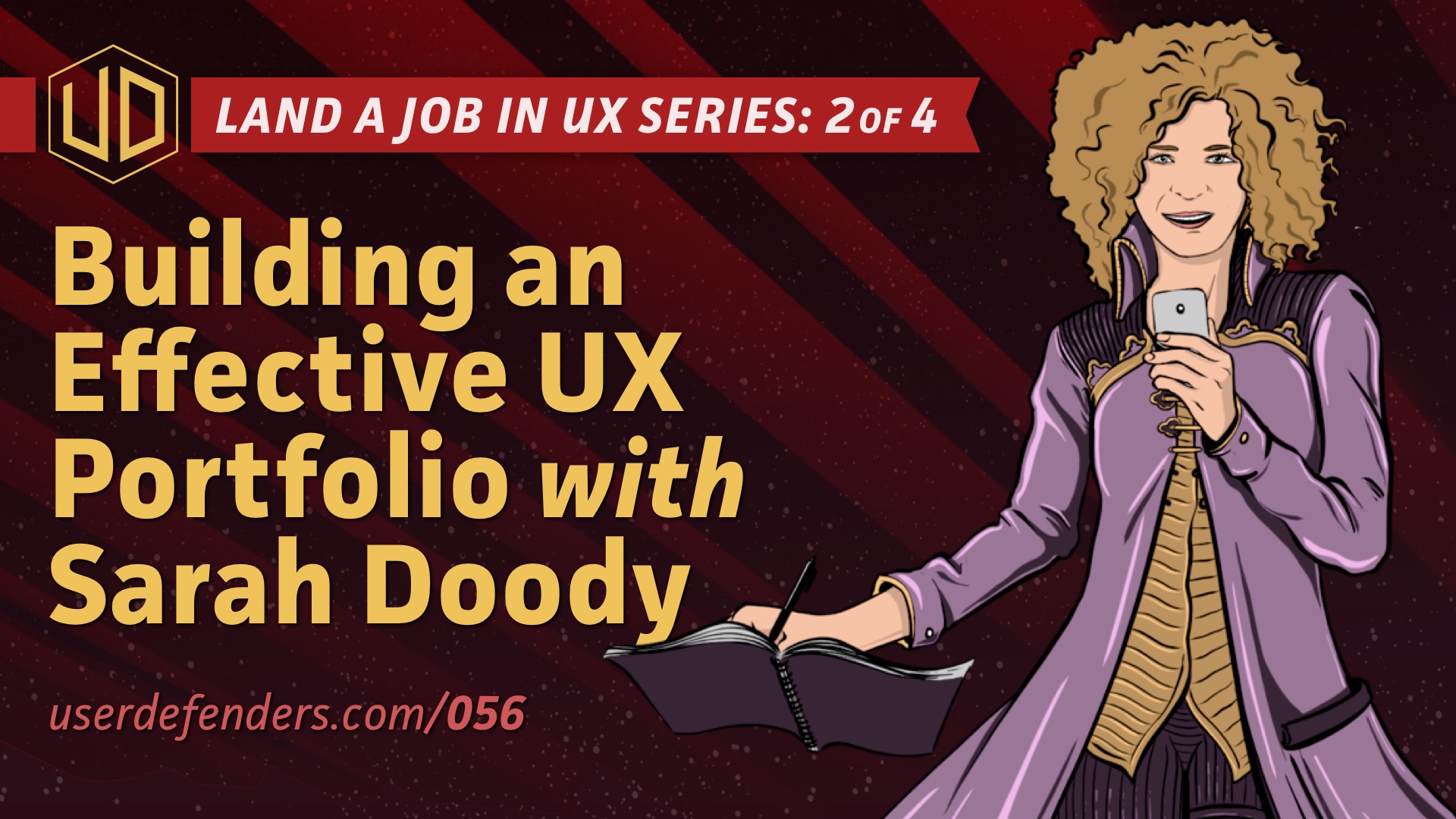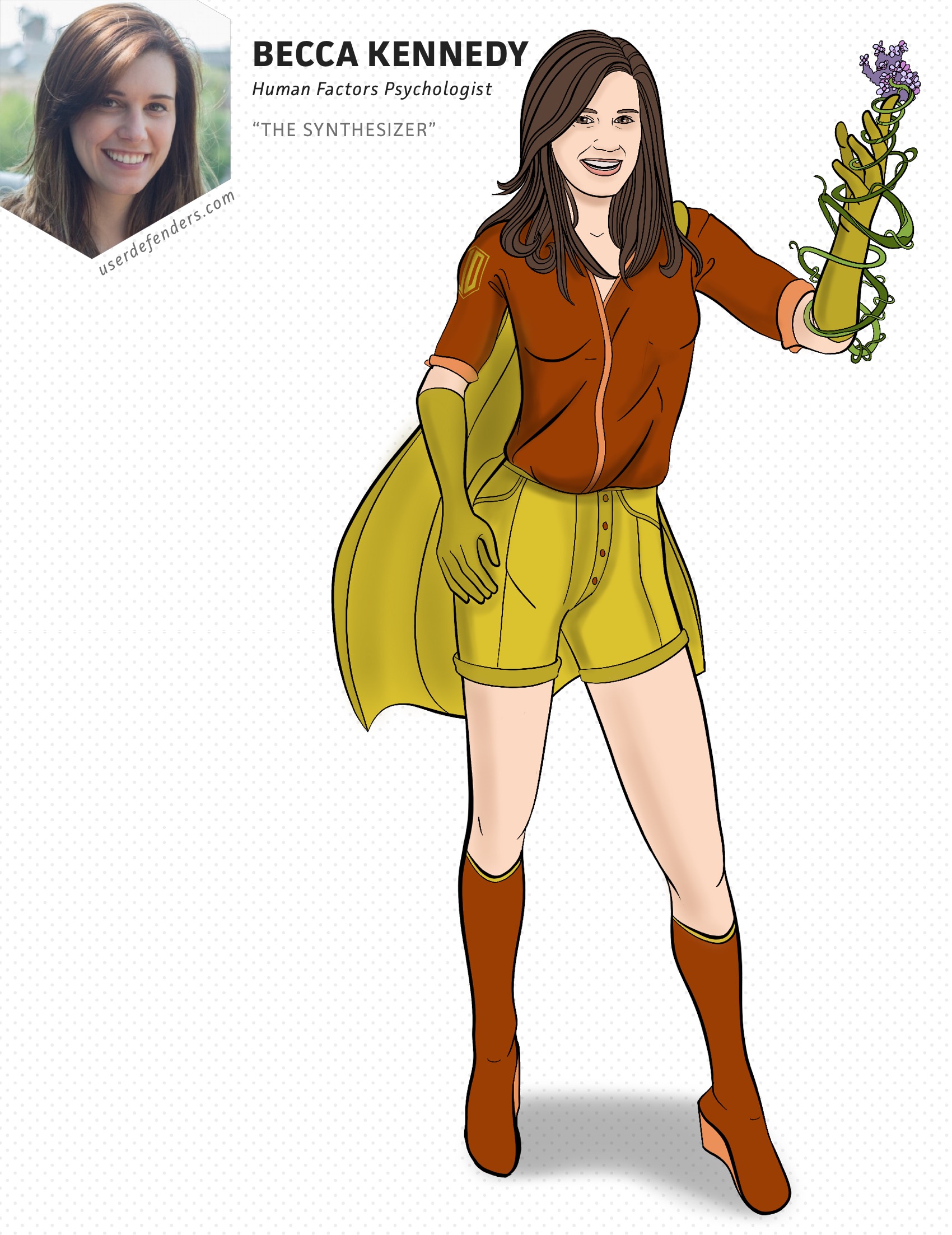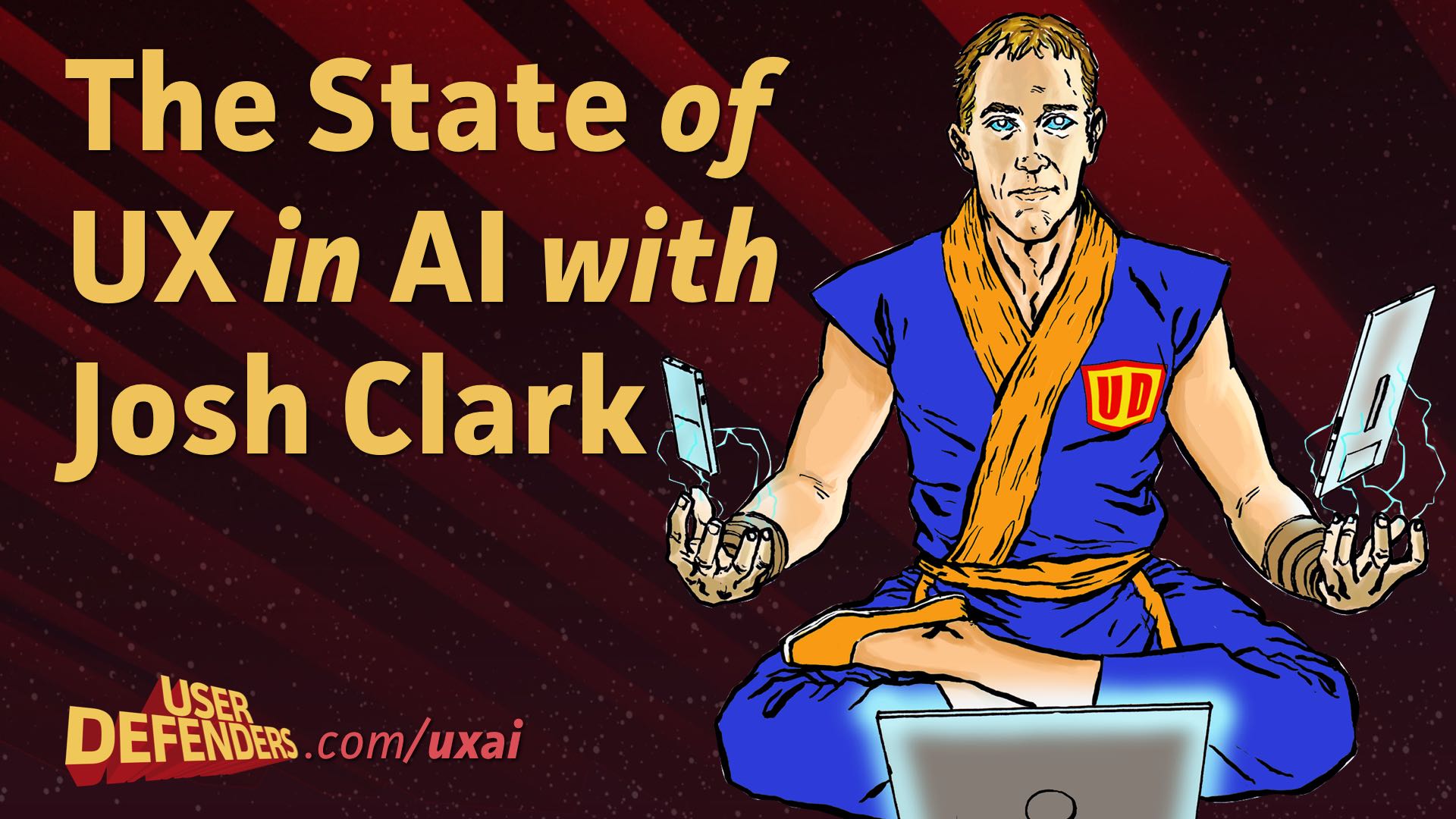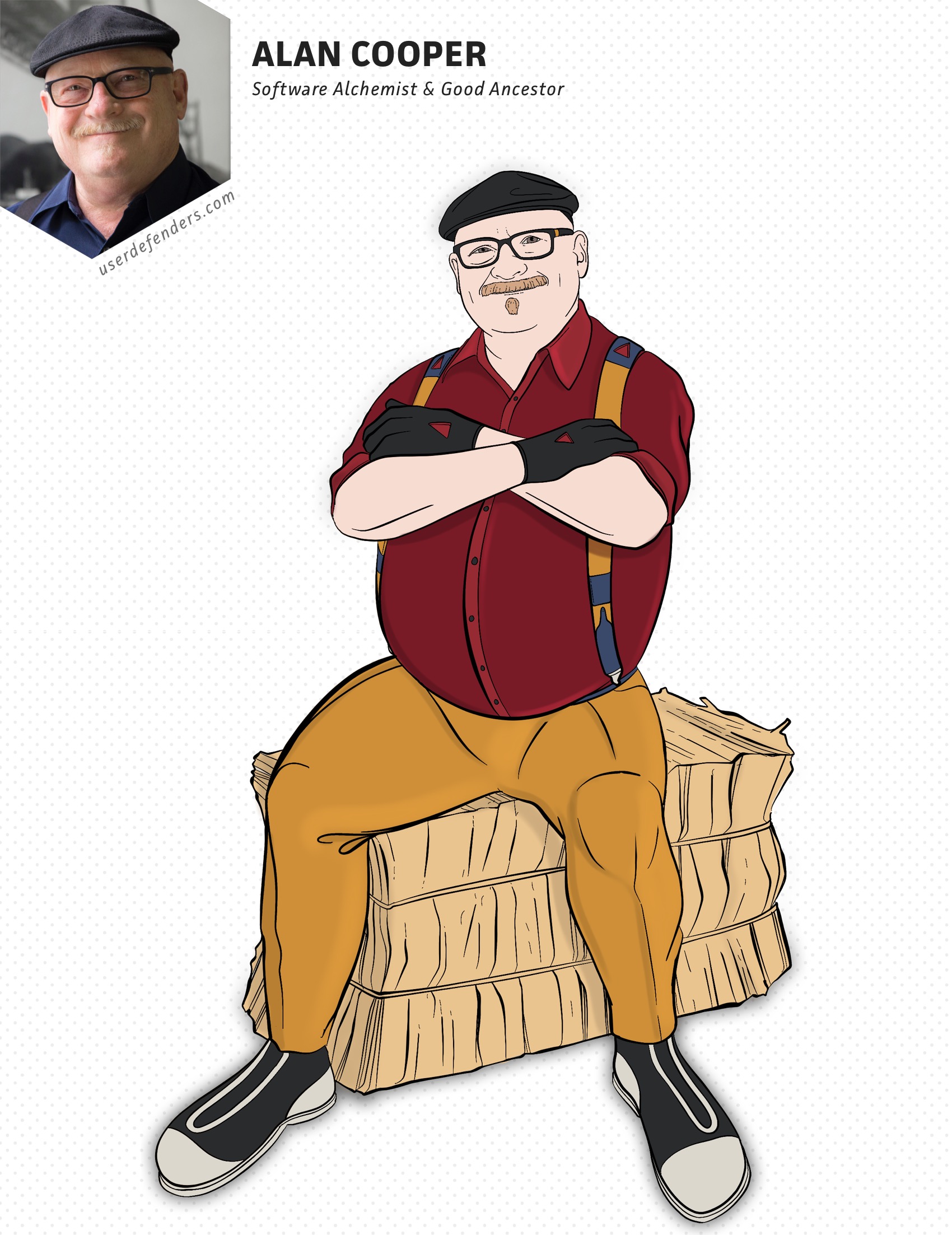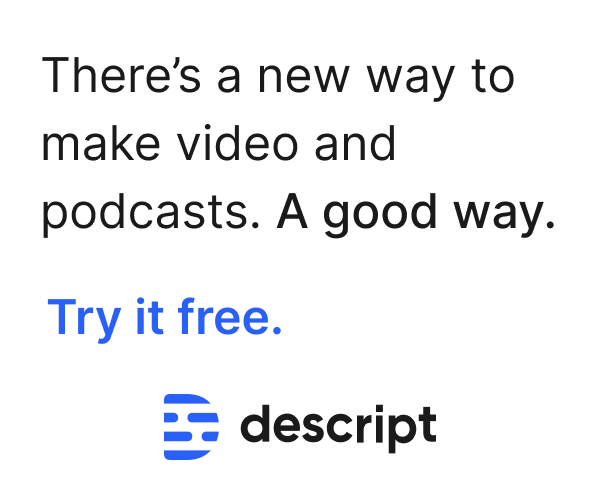
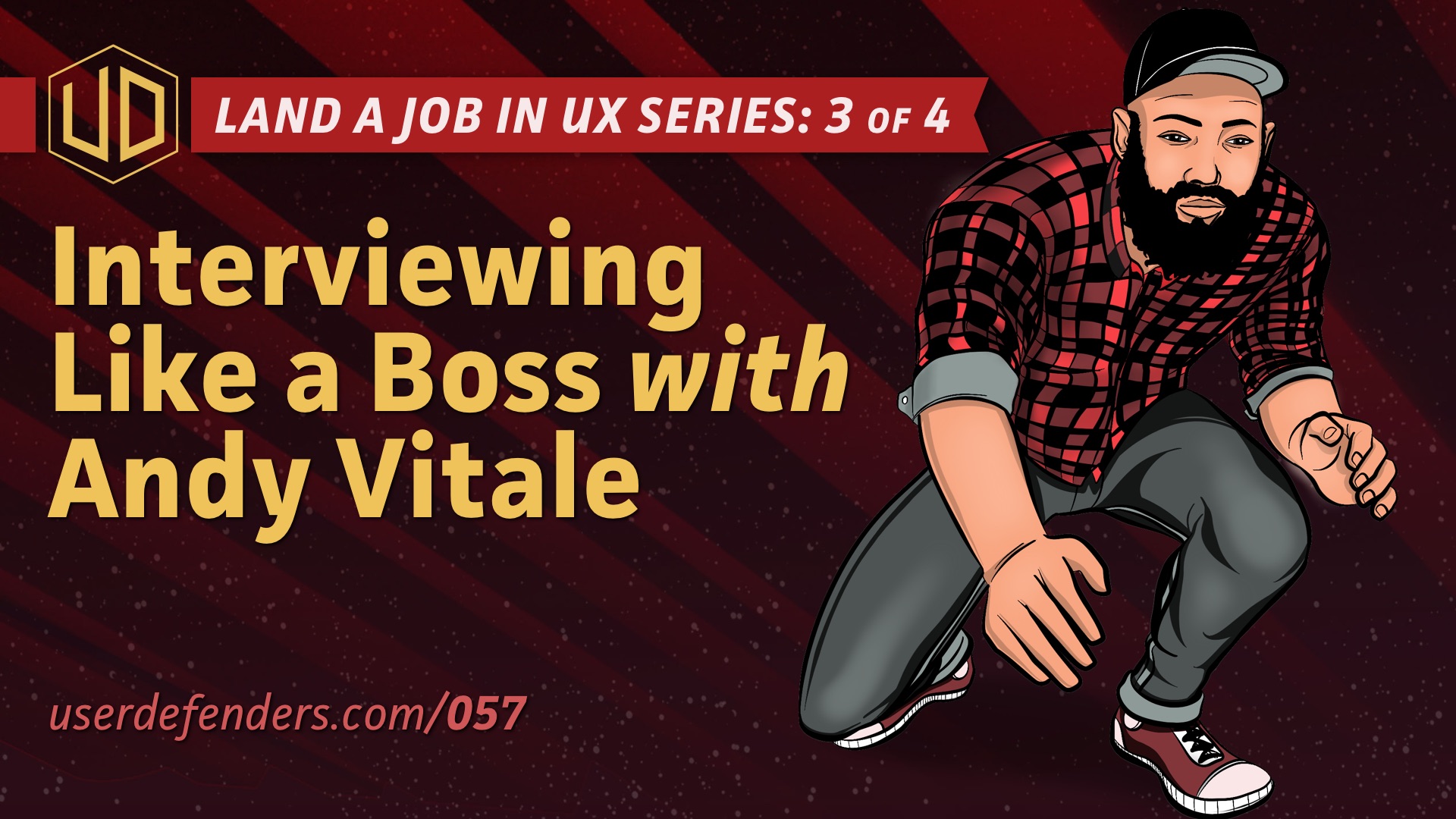
- Artwork by Eli Jorgensen
Andy Vitale teaches us all about how to interview for our next UX job like a boss. He emphasizes the importance of avoiding jargon, and at all costs the temptation to conflate confidence with arrogance. He reminds us to be prepared to get way out of our comfort zones, and even offers smart techniques on how to cope with the discomfort in those critical moments. He also points out that pay isn’t everything, and that a fantastic work culture can make all the difference.
Andy Vitale is the UX Director of Wholesale Banking at SunTrust Bank, one of the nation’s largest financial services companies, where his focus is on translating human insights into actionable experiences to improve the product and service ecosystem within the finance industry. Throughout his career, he has held multiple roles as a designer, entrepreneur, education department chair, and design leader. Aside from his primary role at SunTrust, Andy serves as Director of Design Impact for AIGA Minnesota and often speaks and writes about design. Not-so-fun fact: He was working at a company that suffered the first anthrax attack in the United States back in 2001.
- The Importance of Soft Skills (4:55)
- Calming Your Nerves (17:08)
- The Importance of Body Language (22:18)
- What Do You Love About Interviewing? (36:15)
- What Do You Hate About Interviewing? (38:21)
- How Much Should I Be Paid? (41:13)
- Discussing Salary During an Interview (47:06)
- Favorite Last Interview Questions (51:07)
- Whiteboard Exercise Preparation (54:58)
- How to Tell If a Company Understands UX (60:29)
- Words of Encouragement (63:47)
Continue reading 057: Interviewing Like a Boss with Andy Vitale

